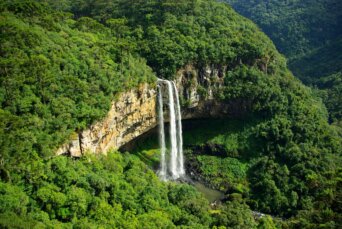- About
- Topics
- Picks
- Audio
- Story
- In-Depth
- Opinion
- News
- Donate
- Signup for our newsletterOur Editors' Best Picks.Send
Read, Debate: Engage.
| topic: | Conservation |
|---|---|
| located: | Brazil |
| editor: | Ellen Nemitz |
In June, the former Environment Minister of Brazil, Ricardo Salles, resigned after being investigated for several irregularities, such as partaking in an illegal logging scheme. FairPlanet has anticipated that, according to environmentalists and NGOs, the new Minister Joaquim Álvaro Pereira Leite will not bring significant changes to the policies adopted by the country.
Since Leite assumed this important position in a country that hosts some of the most diverse biomes in the world - but struggles to preserve them - at least two bills have been proposed concerning the environment: bill number 490/2007, which would lead to an impact on indigenous land demarcation, and bill number 2.633/2020, which aims to change rules of regulation of occupied public land.
The bill came to replace Provisional Measure 910, which lost effect, alleging that a document of ownership is a farmer’s right and that it could boost the sustainability and environmental protection of the areas. In the analysis of environmentalists and NGOs, though, the bill recently approved by the deputies (now headed for Senate approval) could end up legalising the illegal occupation and deforestation of such areas, also impacting indigenous lands.
The NGO Instituto Socioambiental explains that the Portuguese word “grilagem” - a noun derived from the Portuguese word for cricket - was first used to describe a criminal practice of putting false ownership documents in a drawer with crickets, thus giving the papers an aged aspect. Nowadays, they say, the land-grabbing crimes are much more complex and often involve deforestation to create false proof of long-term ownership.
"The approved text allows property titles to be given away to those who deforest and invade without checking if the environmental damage they caused has been recovered. It's a blank check and a crime incentive,” says the attorney of Instituto Socioambiental, Juliana de Paula Batista.
The international NGO WWF also showed concern about the bill. Back in 2020, when it was presented, the organisation assessed that a law based on that text would "reward public land thieves, instead of taking care of alleviating the families most vulnerable to the economic and health crises brought about by COVID-19.”
"Even recognising some progress [compared to the Provisional Measure], it is clear that the project needs many improvements so that it is effectively a balanced proposal that contributes to land regularisation in the country, sorting the wheat from the chaff, separating the land grabber from the good faith rural producer,” reads the document.
The attacks on the environment and indigenous lands come from all sides and are not a new problem. Since Jair Bolsonaro took power, they were boosted, and what we see now is the strengthening of agricultural lobby supporters in key roles, as described in a report by The Guardian.
Nonetheless, while Brazil’s position as one of the main food exporting players in the world is in danger - as other countries condition the future trades towards more concrete actions to preserve the forests - producing food and other commodities in a more sustainable way is possible. Science and indigenous knowledge have been demonstrating it. We have no time left: abandoning the destructive way of exploring nature must be our politicians’ priority.
Image: Tiago Fioreze.

